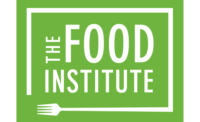Despite economic challenges, investors continue to target food
companies because of the industry’s stable demand and
“recession-resistant” qualities.
By David Houser, Lincoln International
Despite economic challenges, investors continue to target food companies because of the industry’s stable demand and “recession-resistant” qualities. As the recent sale of San Antonio, Texas-based Sterling Foods suggests, transactions involving food companies with strong competitive positions and high barriers to entry continue to occur. Furthermore, through a thoughtful and focused marketing approach tailored toward potential acquirers that have market confidence and sufficient financial resources, sellers can still achieve very attractive returns.
In late December 2008, TGF Management and Austin Ventures, both located in Austin, Texas, acquired Sterling Foods, a leading manufacturer of custom developed shelf-stable, frozen and fresh-baked goods. The transaction, one of five recent food deals completed by Lincoln International, a global middle-market investment bank, is an example of how Lincoln generated significant investor interest and sold a specialty bakery company during a challenging financial climate.
Sterling provides a wide variety of specialty and gourmet baked goods to the military, schools, nationally recognized restaurant chains and the weight-management industry. During the sale process, Lincoln highlighted the following key competitive advantages of Sterling to generate significant investor interest.
• Differentiated products – Using world-class formulating, processing and packaging capabilities, Sterling provides highly differentiated baked goods with extended shelf life and without compromising great taste.
• Market leader – Sterling holds leadership positions in diverse, niche channels, such as the military and school segments, where it enjoys high barriers to entry.
• Longstanding customer relationships – Sterling maintains decades-long relationships with numerous key customers and is consistently recognized for superior service and consistent product quality.
• Strong leadership – Sterling is led by an exceptional management team with significant industry experience and a proven track record of achieving attractive financial results.
By highlighting Sterling Foods’ unique attributes, Lincoln and its client were able to overcome significant challenges in the current financial markets.
For example, during the fourth quarter of 2008 when the sale process was underway, credit availability fell off dramatically and debt prices increased significantly, making the sale to a financial investor more challenging. Capital constraints and liquidity concerns caused lenders to retrench, leaving limited debt available for middle-market transactions.
Furthermore, pricing on all types of capital increased significantly. Throughout the sale process, Lincoln worked closely with the incumbent lenders, as well as other lenders interested in the food industry, to ensure buyers had options to debt finance an appropriate portion of the capital structure. As a result, the incoming shareholders successfully financed and closed the transaction on December 31, 2008.
Since the Sterling deal closed, Lincoln has sold several other food companies. In March, for example, Lincoln represented Harvest Manor Farms, a private label nut company located in El Plano, Texas, in its sale to Ralcorp Holdings. More recently, Lincoln represented East Brunswick, N.J.-based Ecce Panis, a branded artisan in-store-bakery bread company, in its sale to Campbell Soup.
As these transactions demonstrated, merger and acquisition activity continues to occur in the food industry despite the challenging markets. Because of investor demand for companies in recession-resistant industries, as well as those businesses with good future earnings visibility, the food industry remains appealing to private equity and other financial sponsors. In addition, strategic buyers remain active, offering alternatives to many quality, differentiated food companies.
Editor’s Note: David Houser is a managing director in the Chicago office of Lincoln International, a global middle-market investment bank. Houser has guided the firm in its emergence as a leader in middle-market food and consumer products investment banking.
Related Articles
Related Products
See More ProductsSee More ProductsEvents
View AllSubmit An Event-
June 14, 2012 Building a Regulatory Strategy for Marketing Food Supplements in Europe: The key steps to a successful product launch
×
Get our new eMagazine delivered to your inbox every month.
Stay in the know on the latest snack and bakery industry trends.
SUBSCRIBE TODAY!Copyright ©2024. All Rights Reserved BNP Media.
Design, CMS, Hosting & Web Development :: ePublishing




